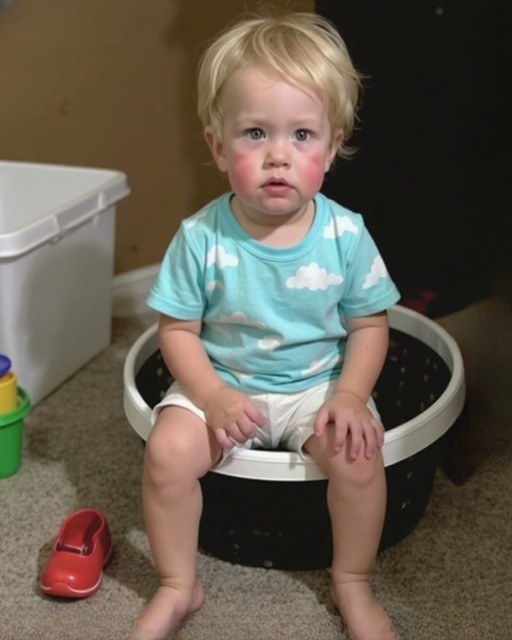It was a gray Saturday morning, the kind where the sky feels heavy and rain lingers in the air. I hadn’t planned to go to the flea market, but desperation rarely allows for plans. Rent was due in two days, the fridge nearly empty, and I had exactly twelve dollars.
My part-time diner shifts barely covered diapers and gas. My two-year-old son, Caleb, was growing fast—he needed shoes. I needed a miracle.
The flea market sprawled across cracked asphalt, rows of tables and tarps forming crooked lines. The air smelled of fried dough, coffee, and faint nostalgia. Old country music drifted from a speaker nearby, blending with voices and footsteps.
I wandered slowly, scanning piles of secondhand clothes, chipped dishes, and forgotten toys. Each table felt like a fragment of another life—a mosaic of memories once cherished, now left behind.
Then I saw them: tiny beige leather baby shoes. Scuffed but sturdy, the stitching frayed softly, soles barely worn. They weren’t flashy, but they radiated gentleness, as if once owned by a deeply loved child.
Behind the table, an older woman with silver hair in a loose bun smiled when she saw me pick them up. “Five dollars,” she said simply.
I turned the shoes over in my hands. “They’re beautiful,” I murmured.
“They’ve got good memories,” she said. “Maybe they’ll bring you luck.”
Five dollars—nearly half of what I had left—but I couldn’t walk away. “I’ll take them,” I said. She wrapped them gently in old newspaper and handed them to me.
At home, Caleb babbled in his playpen as I unwrapped the shoes. They were a little big, but they’d do. I slipped them on his tiny feet—and then heard a faint crackling, like someone stepping on dry leaves.
I pressed the soles again, puzzled. Taking one shoe off, I checked inside: nothing. Yet when I flexed the insole, it felt stiff, as if something was hidden beneath.
That night, after putting Caleb to bed, I examined one shoe by lamp light. My fingernail lifted the insole slightly—and there it was: paper.
A small folded note, yellowed and delicate, revealed tiny, trembling handwriting. “If you found these, please know these shoes belonged to my son, Michael. He never got to walk in them. Love him every day. Nothing else matters.” Signed faintly: “Anna.”
I held the note for a long time, tears brimming. It was barely a paragraph, but it contained a lifetime of love and loss. I tucked it back inside the shoe, quietly grieving and reflecting.
Life went on. Caleb teethed, diner shifts grew longer, exhaustion clung to me—but that note stayed with me, a quiet reminder of hope surviving sorrow.
A week later, I returned to the flea market to find the woman. Her table was gone. No one knew her name. “Comes and goes,” someone said. I left unsettled, yet strangely inspired.
I began moving forward: applying for full-time work, mending a fight with my sister, and writing again at night. Small steps, but progress nonetheless.
Weeks later, a diner regular mentioned his sister was hiring for an office assistant. I applied, half expecting rejection—and got the job.
The morning I dropped Caleb off at daycare, he wore those same shoes. Shoes that once carried another mother’s grief now carried beginnings, small steps into a brighter future.
Months later, the shoes no longer fit. I wrapped them carefully with a note of my own and left them with a baby-clothes vendor at the flea market, passing forward the love Anna had given.
A year later, an envelope arrived—no return address, familiar handwriting. Anna had received my note, learning Caleb had worn the shoes and carried her love forward.
Years later, when Caleb was eight, he found a wooden box of keepsakes, including the shoes and Anna’s letter. “I think the shoes were magic,” he whispered.
I smiled. “Maybe they were.” Not fairy-tale magic, but quiet, ordinary magic: love passed between strangers, moving forward one small step at a time.
